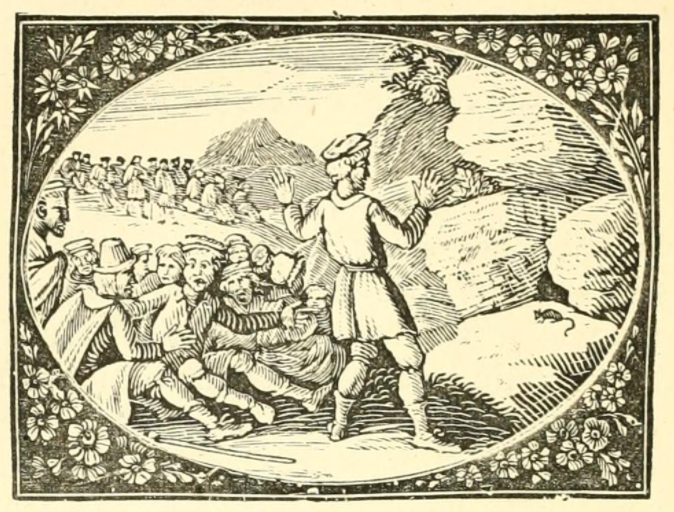And here's a random proverb and a random LOLCat too :
Stories found in public domain Greek textbooks, plus the Daily Greek Vocabulary Challenge, learning Greek words through proverbs and sayings.
Friday, January 31, 2025
Greek Reading: Fables 15
Greek Vocabulary Challenge: Jan. 31
These are the proverbs (and there are always more proverbs at the blog):
And now, some commentary:
And here's a random proverb and a random LOLCat too :
Wednesday, January 29, 2025
Greek Proverb Review: Jan. 30
The slideshow is embedded in the blog post, and you can also access today's slideshow directly, full-sized view. And remember: each time you see the English translation on a slide, you can click to access the original blog post with the notes for each proverb.
- Ἀνδρῶν ἡρώων τέκνα πήματα.
- Ἀνεῳγμέναι Μουσῶν θύραι.
- Ἄνω κάτω πάντα.
- Ἀπὸ μηχανῆς θεός.
- Ἀφ' Ἑστίας ἀρχόμενοι.
- Δικαίως κτῶ.
- Ἐπ' ἀμφότερα καθεύδεις τὰ ὦτα.
- Κακὰ πλεῖστα πόλει δυσνομία παρέχει.
- Ὅν οἱ θεοὶ φιλοῦσιν ἀποθνῄσκει νέος.
- Οὐδὲν γίγνεται ἐκ τοῦ μὴ ὄντος.
- Σίδηρον πλεῖν διδάσκεις.
- Σύροι πρὸς Φοίνικας.
- Τὸ Ἱππάρχου τειχίον.
- Ὑφορῶ μηδένα.
- Χρυσὸς ὁ ἀφανὴς τύραννος.
And here's a random proverb and a random LOLCat too :
Tuesday, January 28, 2025
Greek Reading: Fables 14
And here's a random proverb and a random LOLCat too :
Monday, January 27, 2025
Greek Vocabulary Challenge: Jan. 28
Φωνὴ βοῶντος ἐν τῇ ἐρήμῳ.
Λέων τὴν τρίχα, ὄνος τόν βίον.
Ἅπας μὲν ἀὴρ αἰετῷ περάσιμος.
Τὸ μὲν πνεῦμα πρόθυμον ἡ δὲ σὰρξ ἀσθενής.
Τὸ γὰρ γράμμα ἀποκτέινει, τὸ δὲ πνεῦμα ζῳοποιεῖ.
And now, some commentary:
And here's a random proverb and a random LOLCat too :
Sunday, January 26, 2025
Greek Reading: Fables 13
And here's a random proverb and a random LOLCat too :
Friday, January 24, 2025
Greek Vocabulary Challenge: Jan. 25
And now, some commentary:
And here's a random proverb and a random LOLCat too :
Thursday, January 23, 2025
Greek Reading: Fables 12
And here's a random proverb and a random LOLCat too :
Wednesday, January 22, 2025
Greek Vocabulary Challenge: Jan. 23
These are the proverbs (and there are always more proverbs at the blog):
Οὐδὲ Ἡρακλῆς πρὸς δύο.
Σὺν Ἀθηνᾷ καὶ χεῖρας κίνει.
Καθὼς ἡ μήτηρ καὶ ἡ θυγάτηρ.
Ὤδινεν ὄρος, εἶτα μῦν ἀπέτεκεν.
And now, some commentary:
And here's a random proverb and a random LOLCat too :
Tuesday, January 21, 2025
Greek Reading: Fables 11
And here's a random proverb and a random LOLCat too :
Monday, January 20, 2025
Greek Proverb Review: Jan. 21
The slideshow is embedded in the blog post, and you can also access today's slideshow directly, full-sized view. And remember: each time you see the English translation on a slide, you can click to access the original blog post with the notes for each proverb.
- Ἄδακρυς πόλεμος.
- Ἀδελφὸς ἀνδρὶ παρείη.
- Ἀεὶ γὰρ εὖ πίπτουσιν οἱ Διὸς κύβοι.
- Ἄνευ ξύλου μὴ βάδιζε.
- Ἀπὸ τοῦ ἡλίου μετάστηθι.
- Ἐπαίνει ἀρετήν.
- Θάλαττα, θάλαττα.
- Ἰατρὲ, θεράπευσον σεαυτόν.
- Μὴ ἴσθι ὡς λέων ἐν τῷ οἴκῳ σου.
- Ὁ ἔχων δύο χιτῶνας μεταδότω τῷ μὴ ἔχοντι.
- Πενία δὲ τὴν σοφίαν ἔλαχε.
- Ῥήματα ἀντί ἀλφίτων.
- Τὸ μέλλον οὐδεὶς ἐκφύγοι.
- Τὸ φῶς ἡλίῳ δανείζεις.
- Τύχην νόμιζε.
And here's a random proverb and a random LOLCat too :
Sunday, January 19, 2025
Greek Reading: Fables 10
And here's a random proverb and a random LOLCat too :
Friday, January 17, 2025
Greek Vocabulary Challenge: Jan. 18
These are the proverbs (and there are always more proverbs at the blog):
Φιλόσοφος γίνου.
Ἀεὶ γεωργὸς εἰς νέωτα πλούσιος.
Τοῦτ' ἐστὶ τὸ ζῆν μὴ σεαυτῷ ζῆν μόνῳ.
Ἰσχυρὸν ὄχλος ἐστίν, οὐκ ἔχει δὲ νοῦν.
Γνώμη δὲ κρείσσων ἐστίν ἢ ῥώμη χερῶν.
And now, some commentary:
And here's a random proverb and a random LOLCat too :
Thursday, January 16, 2025
Greek Reading: Fables 9
And here's a random proverb and a random LOLCat too :
Wednesday, January 15, 2025
Daily Greek Vocabulary Challenge: Jan. 16
These are the proverbs (and there are always more proverbs at the blog):
And now, some commentary:
And here's a random proverb and a random LOLCat too :


















